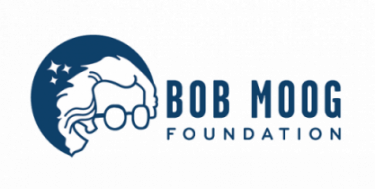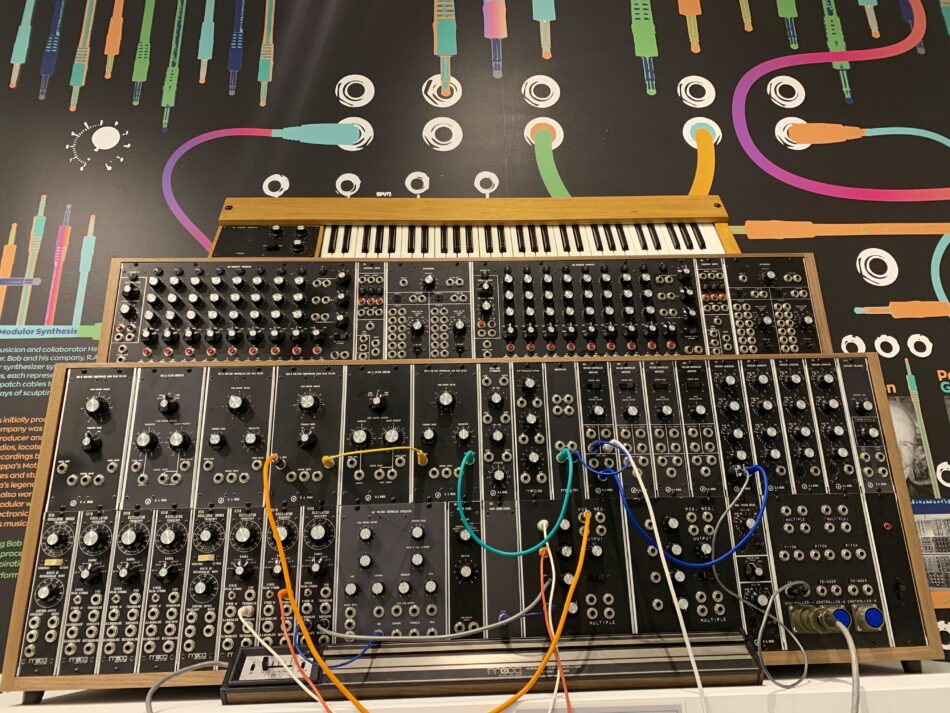
Patching Sound is housed in a newly expanded area of the Moogseum. This exhibit was custom-designed for the Moogseum by Los Angeles-based Sounds Amazing.
Patching Sound: Understanding Modular Synthesis features a unique interface comprised of an oscillator, amplifier, two envelope generators, low-pass filter, and a mixer, with sound generation powered by Cherry Audio’s Voltage Modular instrument. It is accompanied by a narrated presentation that guides the visitor through each element of the patching process.
The exhibit was made possible by a generous donation from Dave and Karen Rossum, with additional support from the North Carolina Humanities an affiliate of the National Endowment for the Humanities. It joins a variety of other unique, interactive exhibits that provide Moogseum visitors with a rich, engaging educational experience.
Synthesizer pioneer Bob Moog, for whom the Moogseum is named, forged his path in synthesis by developing a series of early modular synthesizers between 1964-1970 with his first company, R.A. Moog, Co. These systems are coveted by musicians and collectors worldwide more than 50 years later, and are considered among the best-sounding modular synthesizers ever created.
The expansive functionality and expressivity of these early systems serve as the inspiration for this new exhibit.
A large, fully restored, historic Moog modular synthesizer originally created in 1968 serves as the inspirational backdrop for the interactive installation. The system was originally owned by Patrick Gleeson, founder of legendary Different Fur Studios in San Fransisco, California. It was then sold to synthesist Don Preston of Frank Zappa’s Mothers of Invention, who used it on recordings and on tour, as well as on the soundtrack for Francis Ford Coppola’s Apocalypse Now.
Walter Holland of Holland Synthesizers was its most recent owner. The synthesizer is now part of the Bob Moog Foundation Archives and will be used for future educational and musical endeavors. It underwent a months-long restoration by acclaimed restorationist Stephen Masucci.
“We are thrilled to be offering this new exhibit to the thousands of visitors that come to the Moogseum each year,” noted Michelle Moog-Koussa, Executive Director of the Bob Moog Foundation and the Moogseum. “Our goal is to inspire them through the power and possibilities of modular synthesis, and to spark a sense of sonic discovery that they can carry forth into other areas of their lives. We are grateful to the many people in the synthesizer community who have come together to help make this exhibit possible.”
About North Carolina Humanities: Through public humanities programs and grant making, North Carolina Humanities connects North Carolinians with cultural experiences that spur dialogue, deepen human connections, and inspire community. NC Humanities is a statewide nonprofit and affiliate of the National Endowment for the Humanities, and the federal American Rescue Plan (ARP) Act. To learn more visit nchumanities.org.




